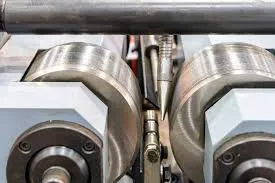
-
 Afrikaans
Afrikaans -
 Albanian
Albanian -
 Amharic
Amharic -
 Arabic
Arabic -
 Armenian
Armenian -
 Azerbaijani
Azerbaijani -
 Basque
Basque -
 Belarusian
Belarusian -
 Bengali
Bengali -
 Bosnian
Bosnian -
 Bulgarian
Bulgarian -
 Catalan
Catalan -
 Cebuano
Cebuano -
 Corsican
Corsican -
 Croatian
Croatian -
 Czech
Czech -
 Danish
Danish -
 Dutch
Dutch -
 English
English -
 Esperanto
Esperanto -
 Estonian
Estonian -
 Finnish
Finnish -
 French
French -
 Frisian
Frisian -
 Galician
Galician -
 Georgian
Georgian -
 German
German -
 Greek
Greek -
 Gujarati
Gujarati -
 Haitian Creole
Haitian Creole -
 hausa
hausa -
 hawaiian
hawaiian -
 Hebrew
Hebrew -
 Hindi
Hindi -
 Miao
Miao -
 Hungarian
Hungarian -
 Icelandic
Icelandic -
 igbo
igbo -
 Indonesian
Indonesian -
 irish
irish -
 Italian
Italian -
 Japanese
Japanese -
 Javanese
Javanese -
 Kannada
Kannada -
 kazakh
kazakh -
 Khmer
Khmer -
 Rwandese
Rwandese -
 Korean
Korean -
 Kurdish
Kurdish -
 Kyrgyz
Kyrgyz -
 Lao
Lao -
 Latin
Latin -
 Latvian
Latvian -
 Lithuanian
Lithuanian -
 Luxembourgish
Luxembourgish -
 Macedonian
Macedonian -
 Malgashi
Malgashi -
 Malay
Malay -
 Malayalam
Malayalam -
 Maltese
Maltese -
 Maori
Maori -
 Marathi
Marathi -
 Mongolian
Mongolian -
 Myanmar
Myanmar -
 Nepali
Nepali -
 Norwegian
Norwegian -
 Norwegian
Norwegian -
 Occitan
Occitan -
 Pashto
Pashto -
 Persian
Persian -
 Polish
Polish -
 Portuguese
Portuguese -
 Punjabi
Punjabi -
 Romanian
Romanian -
 Russian
Russian -
 Samoan
Samoan -
 Scottish Gaelic
Scottish Gaelic -
 Serbian
Serbian -
 Sesotho
Sesotho -
 Shona
Shona -
 Sindhi
Sindhi -
 Sinhala
Sinhala -
 Slovak
Slovak -
 Slovenian
Slovenian -
 Somali
Somali -
 Spanish
Spanish -
 Sundanese
Sundanese -
 Swahili
Swahili -
 Swedish
Swedish -
 Tagalog
Tagalog -
 Tajik
Tajik -
 Tamil
Tamil -
 Tatar
Tatar -
 Telugu
Telugu -
 Thai
Thai -
 Turkish
Turkish -
 Turkmen
Turkmen -
 Ukrainian
Ukrainian -
 Urdu
Urdu -
 Uighur
Uighur -
 Uzbek
Uzbek -
 Vietnamese
Vietnamese -
 Welsh
Welsh -
 Bantu
Bantu -
 Yiddish
Yiddish -
 Yoruba
Yoruba -
 Zulu
Zulu
High Precision Thread Rolling Machine for Enhanced Manufacturing Efficiency and Quality
Understanding High-Quality Thread Rolling Machines and Their HS Code
Thread rolling machines are vital in the manufacturing industry, particularly in the production of threaded fasteners such as screws, bolts, and nuts. These machines work by deforming a cylindrical piece of material under high pressure to create threads, which can enhance the strength and durability of the final product compared to traditional cutting methods. This article delves into the significance of high-quality thread rolling machines and their respective Harmonized System (HS) code, which is essential for international trade compliance.
What is a Thread Rolling Machine?
A thread rolling machine utilizes a series of rotating dies to form threads on a workpiece. The process is characterized by its ability to produce threads without removing material, known as cold forming. This not only saves on material costs but also improves the mechanical properties of the workpiece due to the work-hardening effect. High-quality thread rolling machines are designed for precision, efficiency, and longevity, which makes them a critical investment for manufacturers seeking to maintain competitive advantage.
Importance of Quality in Thread Rolling Machines
The quality of a thread rolling machine directly impacts the quality of the threaded products. High-quality machines ensure consistent thread dimensions, minimal waste, and enhanced surface finishes, leading to improved product performance and reliability. In industries such as aerospace, automotive, and construction, where safety and precision are paramount, investing in high-quality thread rolling machines is essential. Furthermore, these machines can adapt to different materials and thread specifications, making them versatile and cost-effective solutions for manufacturers.
high quality thread rolling machine hs code

HS Code for Thread Rolling Machines
The Harmonized System (HS) code is an internationally standardized numerical method of classifying traded products. It is crucial for customs declarations and tariff purposes. The HS code for thread rolling machines generally falls under the category of machines for working metal, specifically under the subheading that covers machines for forming threads or rolling threads on screws and bolts. Typically, the HS code for thread rolling machines is 8458.10, which indicates that these machines are specialized for thread manufacturing.
Why HS Code Matters
Understanding and using the correct HS code is essential for manufacturers and exporters to ensure compliance with international trade regulations. Utilizing the appropriate HS code can facilitate smoother customs procedures, avoid delays, and reduce the risk of penalties. It also helps businesses in accurately assessing duties and taxes applicable to their products.
Conclusion
In conclusion, high-quality thread rolling machines play a crucial role in various manufacturing sectors by providing efficient and reliable threading solutions. Their significance is underscored by the need for precision and quality, particularly in safety-critical applications. The correct identification and use of the HS code for these machines are essential for compliance in the international trade landscape. Manufacturers must prioritize investing in advanced thread rolling technologies and ensure they are well-versed in regulatory requirements to maximize their operational efficiency and market reach.
